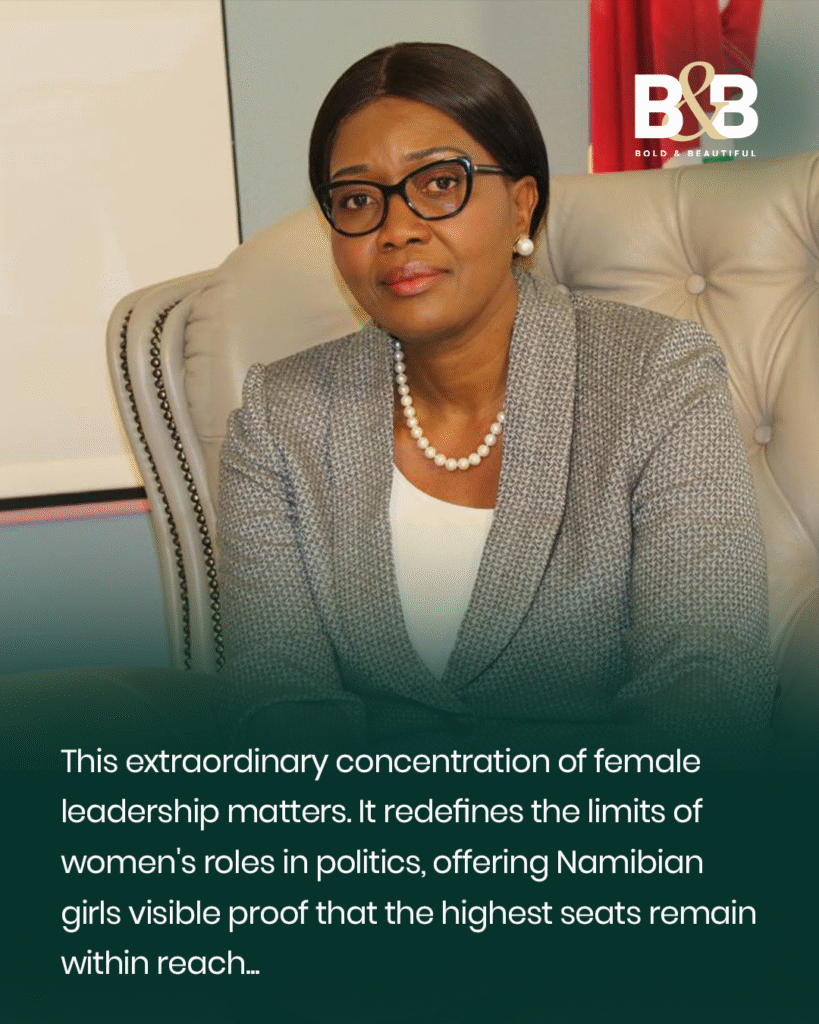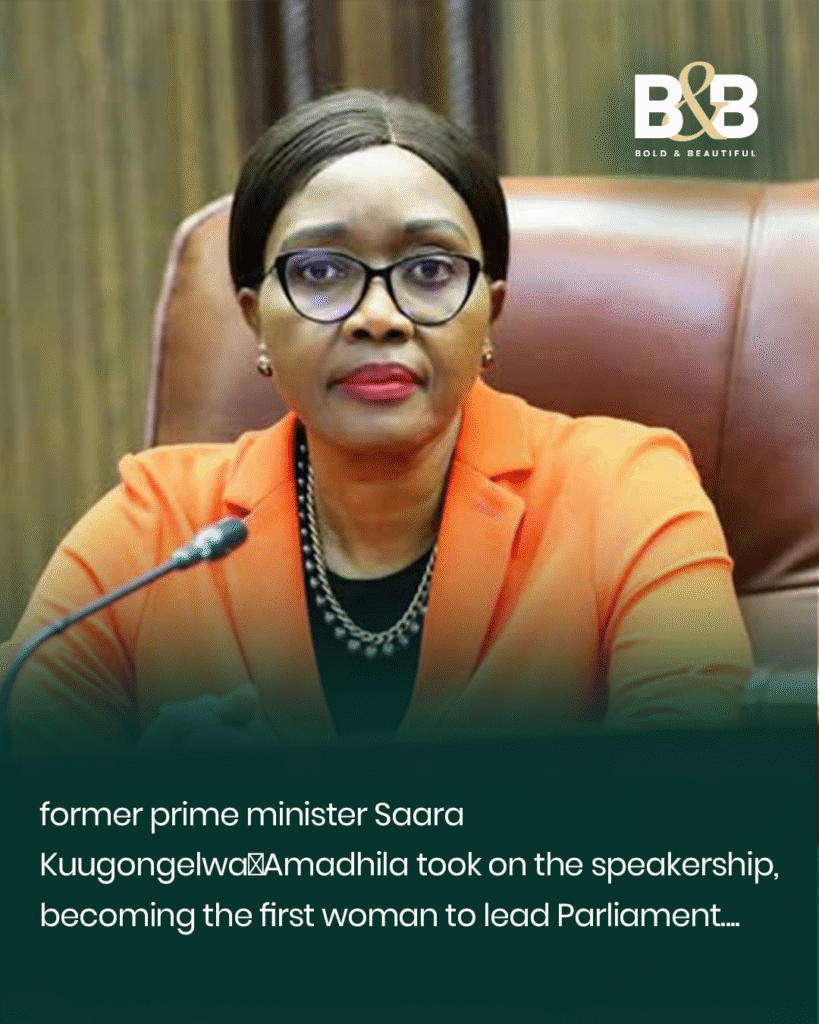Namibia has rewritten the rulebook on political leadership by installing women in its top three government positions—a first in the world. At its helm is President Netumbo Nandi‑Ndaitwah, flanked by Vice‑President Lucia Witbooi and Speaker Saara Kuugongelwa‑Amadhila, marking a landmark shift in African governance.

Netumbo Nandi‑Ndaitwah, 72, brings a life lived in politics. Decades ago, she joined SWAPO’s liberation movement as a teenager, later serving as foreign minister and deputy prime minister, before becoming vice-president in early 2024 . In December’s election, she secured nearly 57% of the vote, becoming the first female president of Namibia.

During her inauguration on 21 March, on Namibia’s 35th Independence Day, Nandi‑Ndaitwah pledged to diversify the economy, empower youth, and fight corruption. Her cabinet reflects her vision: 57% female, with Lucia Witbooi, formerly a 27‑year schoolteacher and parliamentarian, selected as vice‑president. Meanwhile, former prime minister Saara Kuugongelwa‑Amadhila took on the speakership, becoming the first woman to lead Parliament.
Namibia joins the global vanguard in gender equality—one of only three African nations with a gender-balanced cabinet, and the first ever to have women in its top three offices. These appointments aren’t token gestures: eight of the 14 cabinet ministers are women, heading major departments such as finance, foreign affairs, health, education, and gender equality.
Despite breaking glass ceilings, Namibia faces substantive structural challenges. Economic inequality remains at the top of global charts, youth unemployment hovers around 44%, and SWAPO’s influence is waning among younger voters, according to Wikipedia, Reuters, and Al Jazeera. Political analysts caution that symbolic representation must translate into jobs, economic opportunity, and social progress for all Namibians .
Why It Matters
This extraordinary concentration of female leadership matters. It redefines the limits of women’s roles in politics, offering Namibian girls visible proof that the highest seats remain within reach. Nandi‑Ndaitwah herself said she was elected “on merit, not gender,” emphasising competence over identity. Her government aims to prove that when women lead, the whole nation benefits.
What to Watch
- Economic reform: Expect aggressive action in agriculture, mining, tourism, and green energy sectors, aimed at job creation.
- Youth engagement: Young Namibians will closely monitor whether this female leadership translates into meaningful opportunity.
- Gender norms: With precedent already set, attention turns to how empowered women in leadership will effect systemic change in gender-based violence and workplace equality.





